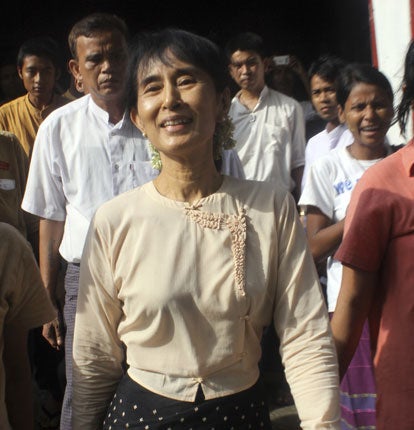Night Waves, Radio 3, Tuesday, Wednesday<br/>The Reith Lectures, Radio 4, Tuesday
Thought, reason, humour...whatever will they think of next?

We're not keen on intellectuals in this country, placing them in the vicinity of journalists, politicians and traffic wardens on the national scale of contempt, but Radio 3 does its best to give them succour.
Its latest attempt to feed our heads is the New Generation Thinkers scheme, the culmination of an X Factor-style contest for young academics that drew more than 1,000 applicants. There were workshops in which they were given a grounding in programme-making, and the final 10 each get a few minutes on Night Waves to talk about their current interests, which range from the significance of the desert in modern culture to the history of fan mail, and how economics shapes the moral landscape.
It kicked off on Tuesday with Alexandra Harris of Liverpool University. Her big thing now is the cold. "Has English coldness in some way determined who we are?" she asked, and went on to trace wintriness in literature, from the Anglo-Saxon poem The Wanderer through to WH Auden and his does-what-it-says-on-the-tin essay "I like it cold". Although it was only about six or seven minutes in a 45-minute programme, Harris established her broadcasting credentials with a diverting talk that ended with the thought that the examples she'd cited "give us new ways of feeling cold, and the assurance that at times imagination can keep us warmer than a jumper". I'm not entirely sure about that, but it was interesting stuff.
Wednesday's talk, by Zoe Norridge of York University, was about cultural responses to the Rwandan genocide. She talked about the genocide memorial at Murambi. There, corpses preserved in quicklime lie starkly on tables, soft tissue intact. Do the remains help to deal with the past, Norridge wondered, or do wounds remain unhealed while there are bodies unburied?
It was Lord Reith who established the BBC as the keeper of Britain's intellectual flame, and in the first of the Reith Lectures, Aung San Suu Kyi reflected on freedom, with a light touch that came as a slight and welcome surprise. In the course of a moving talk she painted a vivid picture of the headquarters of her National League for Democracy, which, she, observed, has been described as a "cowshed". She doesn't mind: "After all, didn't one of the world's most influential movements begin in a cowshed?"
She found time to tease the writer Timothy Garton Ash, one of her most fervent supporters over the years. In the question-and-answer session there was some pessimism expressed about things changing in Burma any time soon – but not from Suu Kyi: "I'd just like to remind Tim that he wrote in the late 1980s that change was not going to come to East Germany for a very, very long time." Touché.
By the way, I've been meaning to comment on the iPlayer website's "More Like This" facility, which recommends similar programmes to the one you're listening to. Allegedly. The More Like This suggestion for The Reith Lectures when I was listening was Loose Ends, which is frankly bizarre. What's the thinking there? That house arrest means that Suu Kyi has been at a loose end for the past couple of decades? Or am I missing something?
Join our commenting forum
Join thought-provoking conversations, follow other Independent readers and see their replies
Comments